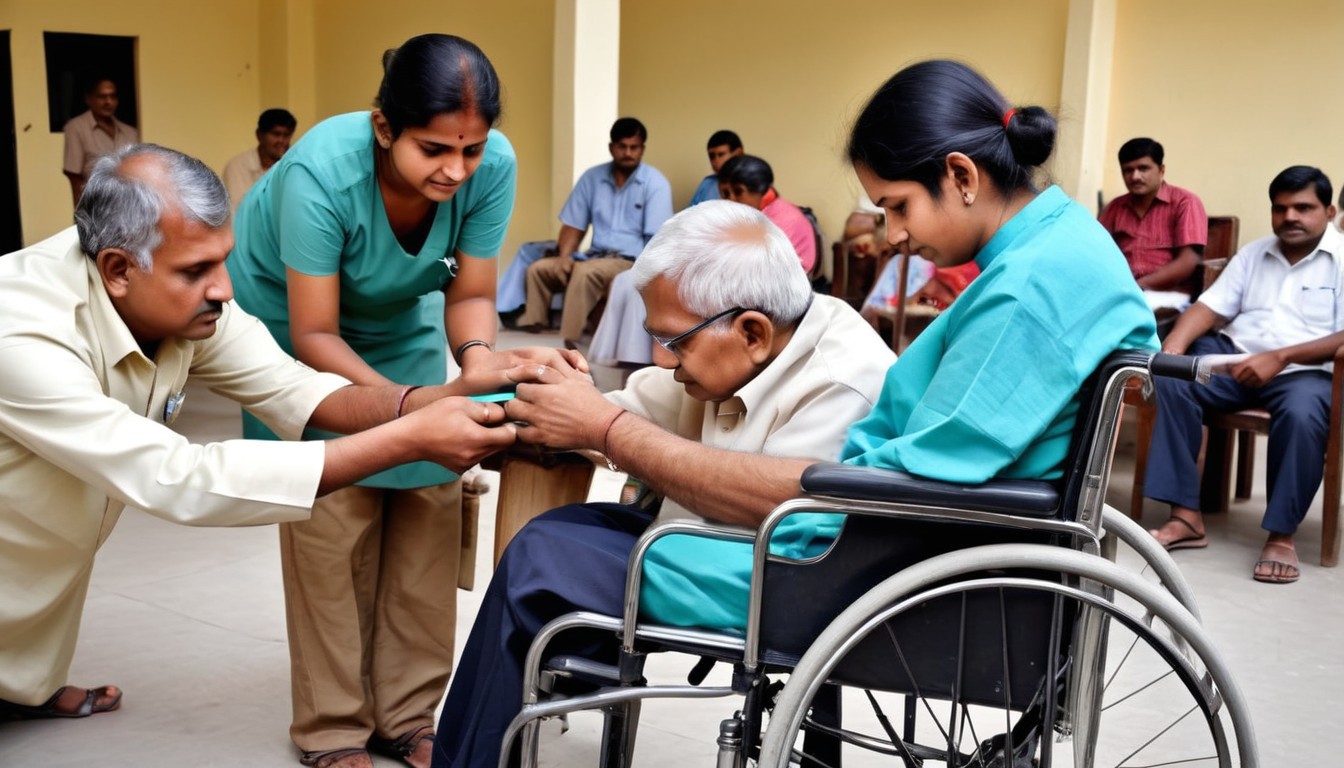
Facing medical bills as a differently-abled person in Kerala? The Distress Relief Fund for the Differently Abled (Medical Treatment) can help. Learn about eligibility, application process, and more.
The state of Kerala in India has a commendable social welfare program called the Distress Relief Fund for the Differently Abled (Medical Treatment). This initiative offers financial aid to differently-abled individuals residing in Kerala to help them manage medical expenses, including surgery.
This article serves as a comprehensive guide to this program, providing you with crucial information about eligibility criteria, the application process, and frequently asked questions.
Details of Distress Relief Fund For The Differently Abled (Medical Treatment)
Through G.O.(MS) 4/95 SWD, issued January 24, 1995, the Keralan government approved the Distress Relief Fund for individuals with disabilities. One crore rupees has been placed in the Treasury as a corpus fund. The fund’s interest income is used to provide disabled people with financial support for the following uses:
1. For medical treatment, including surgery.
2. To persons who become handicapped due to accidents.
3. For any other purpose which is not covered by the existing schemes for the handicapped.
Benefits of Distress Relief Fund For The Differently Abled (Medical Treatment)

- The program provides ₹5,000/-a year in financial aid for medical treatment, including surgery, to individuals who are crippled or have become handicapped.
- Surgery is among the medical procedures covered by the fund.
- It can also help people whose accidents left them crippled.
- The program is intended for people whose requirements are not satisfied by the current disability welfare programs.
Eligibility
- The candidate must be a Kerala State native and current resident.
- A disabled individual or someone who has become handicapped as a result of an accident may apply under the program for surgery and other medical care.
- Financial help is available to disabled individuals whose yearly income does not exceed ₹20,000 in rural areas and ₹22,375 in urban areas.
- Those who are physically disabled fall into one of the following groups or disabilities::
a. Blind
b. Deaf and Dumb
c. Orthopedically Handicapped
d. Mentally Challenged
e. Persons in the Below Poverty Line (BPL) category having 40 % disability or more.
Application Process
Online Application
Registration Process:
Step 1: The applicant must visit the SUNEETHI Online Service Application Portal in order to receive the benefits of the scheme.
Step 2: Select “One time Registration” from the main page.
Step 3: Click “Register” after entering your information, including your name, email address, and phone number.
Step 4: After entering the verification code they received on their mobile device, the applicant must click “Verify.”
Step 5: A form to create a new profile will now open. Fill it out with all the required information and click “Register.”
Login/Application Process:
Step 1: After completing the registration process, the candidate should go to the SUNEETHI Online Service Application Portal and select “Citizen Login.”
Step 2: Click “Sign in” after entering the user name, which is your mobile number, and password.
Step 3: The applicant must now select the “Edit” button to change all of their information, including their bank account information, identity cards, and personal information.
Step 4: The schemes will show up on the left side of the screen after the applicant has correctly changed their profile.
Step 5: Choose the plan and press the “Apply Now” button.
Step 6: Complete the application form by entering all required information, then click the “Submit” button.
Offline Application
Step 1: The applicant must download the application form from the Social Justice Department’s official website in order to be eligible for the scheme’s benefits. This may be done by visiting the department’s official website.
Step 2: Applicants must fully complete the application form.
Step 3: Completed application forms and required documentation can be sent to the relevant District Social Justice Officer (DSJO).
Step4: After conducting a thorough investigation into each case individually and sending a copy to the Director of Social Justice, the DSJO will transfer the applications to the Secretary of Government’s Social Justice Department in the Secretariat with recommendations appropriately verifying the eligibility.
Following Up on Your Application
Once you submit your application, you can expect the District Social Justice Department to verify your documents and assess your eligibility. The department might contact you for further information if needed. The processing time can vary depending on individual cases.
Documents Required
- Identity proof i.e. Aadhaar Card, Voter ID Card
- Mobile number
- Email id
- Passport size photo
- Doctor’s certificate that treatment is necessary
- Copy of Income Certificate (Original)
- Bank account details- Copy of bank passbook
- Other documents, if any
FAQ
Which department has launched this scheme?
Social Justice Department, Government of Kerala
Can I apply for the fund multiple times in a year?
The program allows only one application per person per year.
Is there any criterion for annual family income?
Yes, the annual income of the applicant should not exceed (₹20,000/- in Rural areas and ₹22,375/- in Urban areas).
For what purpose will financial assistance be given to disabled persons?
The financial assistance shall be given to disabled persons for the purposes such as (a) For medical treatment, including surgery. (b) To persons who become handicapped due to accidents (c) For any other purpose which is not covered by the existing schemes for the handicapped.
Conclusion
The Distress Relief Fund for the Differently Abled (Medical Treatment) is a commendable initiative by the Kerala government. It offers crucial financial support to differently-abled individuals in need of medical treatment. By understanding the eligibility criteria, application process, and relevant details, you can leverage this program to manage your healthcare expenses. Remember, if the fund’s assistance is insufficient, don’t hesitate to explore other government schemes or reach out to NGOs for further aid.

